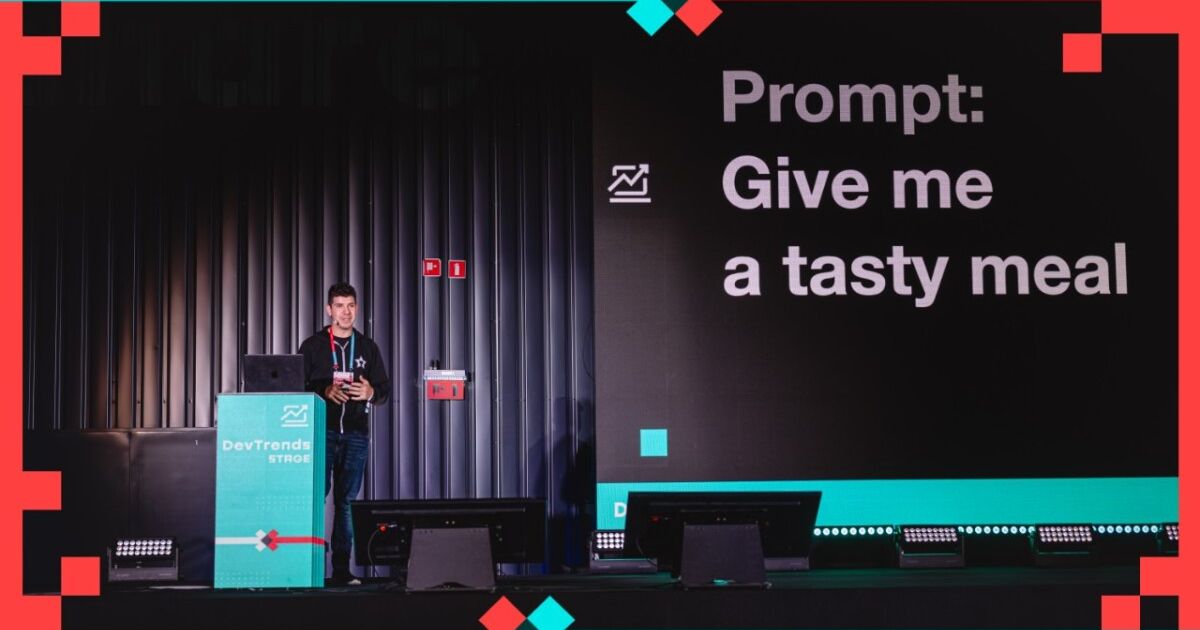VIEW SPEECH SUMMARY
- Audience mostly programmers, many use AI tools daily for coding.
- AI is rapidly evolving; staying updated is challenging.
- The concept of Artificial General Intelligence (AGI) discussed as a future goal.
- Misconceptions about AI often dramatized; real AI developments focus on practical applications.
II. Impact of AI on Programming and Jobs
- AI is changing coding, learning, and collaboration methods.
- Despite talk of AI "killing" roles (programmers, designers, etc.), industry and software engineering jobs continue growing, though growth is slowing.
- AI tools (e.g., V0) can generate applications from prompts but still have limitations, such as producing imperfect code.
- AI-generated code may degrade in quality over iterations, partly due to AI "hallucinations" (false or made-up outputs).
III. Opportunities with AI and New Technologies
- AI enables significant new business models, e.g., client-side image processing without servers using WebGPU.
- WebGPU allows heavy computation (AI models, games) to run locally in browsers, enhancing privacy and reducing infrastructure costs.
- Google’s Gemini Nano will integrate AI capabilities directly into browsers, enabling local AI-powered features.
- Running AI locally is fast, private, free, and sufficient for many use cases despite less power compared to large server-hosted models.
IV. AI Tools and “Vibe Coding”
- “Vibe coding” defined as a workflow where programmers iterate by prompting AI to generate and fix code continuously without manually reviewing all code.
- This approach uses natural language (English) heavily, shifting programming towards instructions given to AI.
- Real risks include false sense of expertise, deploying insecure or broken code, and reliance on AI without understanding fundamentals.
- Examples show instances where vibe coding led to security issues due to lack of oversight.
V. AI-Assisted Development Tools and Agents
- OpenAI’s Codex and GitHub Copilot Agent mode automate tasks like bug fixes, feature additions, and pull requests.
- Several Visual Studio Code forks (Courser, Windsurf, Trial) provide AI chat interfaces integrated into code editors.
- AI-enabled editors support conversational coding and on-the-fly code modifications.
- Despite AI advances, coding fundamentals remain vital; the market continues to invest heavily in AI-enabled development tools.
VI. Live Demo Highlights
- Demonstration creating a website using AI with Astro framework and data from markdown file.
- AI parses content, generates code, and creates a functional interactive table with filters and sorting.
- The process involves iterative prompting and accepting AI changes in a declarative style.
- Some errors and limitations appeared but were attempted to be fixed on-the-fly by AI.
- The demo illustrates the promise and challenges of vibe coding.
VII. Key Takeaways and Recommendations
- AI is a powerful programming assistant, not a complete replacement.
- Programmers must know coding fundamentals to supervise AI output, maintain code quality, and ensure security.
- Learning prompt engineering is important but should complement, not replace, learning programming basics.
- AI enables faster prototyping, skill augmentation, and exploration but responsibility for final code quality lies with developers.
Actionable Items / Tasks:
- Develop familiarity with new browser APIs like WebGPU to leverage local AI processing.
- Explore AI-assisted code editors and tools such as GitHub Copilot and Codex.
- Practice vibe coding responsibly by combining AI prompting with solid programming knowledge.
- Prioritize understanding secure coding practices to avoid risks of deploying AI-generated code blindly.
- Continue learning fundamentals: data structures, algorithms, clean code principles.
- Experiment with iterative prompting and AI-driven development workflows to enhance productivity.
- Monitor emerging AI models and integrations like Google Gemini Nano for cutting-edge features.
The Rise of Vibe Coding and the Future of Programming
13:10 - 13:40, 27th of May (Tuesday) 2025 / DEV TRENDS STAGE
We’re entering a new era in software development — one where coding is no longer just about logic and syntax, but about collaboration with machines, creativity, and vibe.
In this talk, we'll explore how AI is transforming the way we write code: from pair programming with tools like GitHub Copilot to building entire apps from a prompt. But with great power comes great confusion — and sometimes chaos. Are we really becoming more productive? Are junior developers being left behind? And what happens when our tools start to feel like they know more than we do?
We’ll talk about "vibe coding" — the trend of coding guided more by intuition, AI suggestions, and fast iterations than deep understanding. Is it the future, or just a phase?
Expect a fast-paced, funny, and thought-provoking session packed with real-world examples, live demos, and lessons from the edge of what’s possible with modern tools.
This is a talk for developers, creators, and curious minds who want to better understand where we're headed — and how to stay relevant (and sane) in a world where programming is being redefined.



